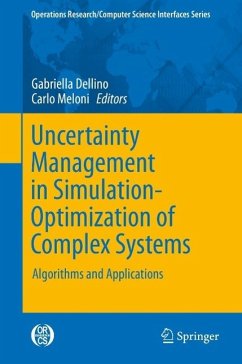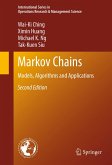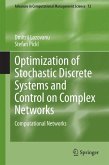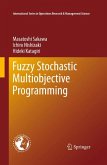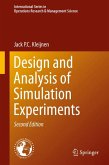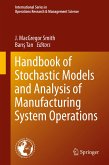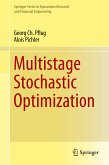This book illustrates strategies to account for uncertainty in complex systems as described by computer simulations. When optimizing the performances of these systems, accounting for or neglecting uncertainty may lead to completely different results; therefore, uncertainty management is a major issue in simulation-optimization. Because of its wide field of applications, simulation-optimization issues have been addressed by different communities with different methods, and from somewhat different perspectives. Alternative approaches have been developed, also depending on the application context, without any well-established method clearly outperforming the others.
The book brings together researchers from different (though interrelated) areas; namely, statistical methods, experimental design, stochastic programming, global optimization, metamodeling, and design and analysis of computer simulation experiments. The aim of this editorial work is to take advantage of such a multidisciplinary environment to give readers a much deeper understanding of the commonalities and differences of the various approaches to simulation-based optimization, especially in uncertain environments. Editors aim to offer a bibliographic reference on the topic, enabling interested readers to learn about the state-of-the-art in this research area, while also accounting for potential real-world applications. Besides researchers and scientists in the field, the primary audience for the book includes Ph.D. students, academic teachers, and practitioners.
The editors have been the recipients of a European Science Foundation award (STRAT01-EW11-068) for the organization of the Strategic Workshop "Uncertainty management in simulation-optimization of complex systems: algorithms and applications", held in Rome from 9th to 12th May 2012, which foster an in-depth trans-disciplinary discussion on the topic of this book.
The book brings together researchers from different (though interrelated) areas; namely, statistical methods, experimental design, stochastic programming, global optimization, metamodeling, and design and analysis of computer simulation experiments. The aim of this editorial work is to take advantage of such a multidisciplinary environment to give readers a much deeper understanding of the commonalities and differences of the various approaches to simulation-based optimization, especially in uncertain environments. Editors aim to offer a bibliographic reference on the topic, enabling interested readers to learn about the state-of-the-art in this research area, while also accounting for potential real-world applications. Besides researchers and scientists in the field, the primary audience for the book includes Ph.D. students, academic teachers, and practitioners.
The editors have been the recipients of a European Science Foundation award (STRAT01-EW11-068) for the organization of the Strategic Workshop "Uncertainty management in simulation-optimization of complex systems: algorithms and applications", held in Rome from 9th to 12th May 2012, which foster an in-depth trans-disciplinary discussion on the topic of this book.
Dieser Download kann aus rechtlichen Gründen nur mit Rechnungsadresse in A, B, BG, CY, CZ, D, DK, EW, E, FIN, F, GR, HR, H, IRL, I, LT, L, LR, M, NL, PL, P, R, S, SLO, SK ausgeliefert werden.

